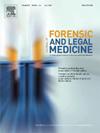为尊严而呐喊:在尼日利亚医疗保健中,产后妇女所经历的言语、身体和情感虐待。
IF 1.2
4区 医学
Q3 MEDICINE, LEGAL
引用次数: 0
摘要
目的:本研究探讨并描述了在尼日利亚奥约州选定的二级卫生机构中遭受产科暴力(OV)的产后妇女的生活经历。方法:本研究采用定性研究设计。有目的的抽样技术被用来招募30名参与者的研究。使用焦点小组讨论访谈指南作为数据收集的工具。数据分析采用主题分析法,采用科莱子数据分析的七个阶段。结果:分析了产后妇女在怀孕和分娩期间经历的OV的五个主题,包括语言虐待、遗弃照顾、身体虐待、无尊严照顾和未经同意的照顾。结论:解决OV问题需要有针对性的政策,促进尊重护理,对医疗保健提供者进行道德实践和知情同意方面的培训,并改善医疗保健基础设施。增强妇女权能和建立问责制对于营造有尊严和安全的孕产妇保健环境至关重要。本文章由计算机程序翻译,如有差异,请以英文原文为准。
A Cry for dignity: Verbal, physical, and emotional abuse experienced by postpartum women in Nigerian healthcare
Objective
This study explores and describes the lived experiences of postpartum women of Obstetric Violence (OV) in selected secondary health facilities in Oyo State, Nigeria.
Methods
The study utilized a qualitative research design. A purposive sampling technique was used to recruit thirty participants for the study. A Focus Group Discussion interview guide was used as an instrument of data collection. Thematic analysis was used in analyzing the data using Collaizi's seven stages of data analysis.
Results
The analyzed data on the OV experienced by postpartum women during pregnancy and childbirth generated five themes, which include verbal abuse, abandonment of care, physical abuse, non-dignified care, and non-consented care.
Conclusion
Addressing OV requires targeted policies promoting respectful care, healthcare provider training on ethical practices and informed consent, and improved healthcare infrastructure. Empowering women and establishing accountability systems are critical for fostering a dignified and safe maternal healthcare environment.
求助全文
通过发布文献求助,成功后即可免费获取论文全文。
去求助
来源期刊

Journal of forensic and legal medicine
MEDICINE, LEGAL-
CiteScore
2.70
自引率
6.70%
发文量
106
审稿时长
57 days
期刊介绍:
The Journal of Forensic and Legal Medicine publishes topical articles on aspects of forensic and legal medicine. Specifically the Journal supports research that explores the medical principles of care and forensic assessment of individuals, whether adult or child, in contact with the judicial system. It is a fully peer-review hybrid journal with a broad international perspective.
The Journal accepts submissions of original research, review articles, and pertinent case studies, editorials, and commentaries in relevant areas of Forensic and Legal Medicine, Context of Practice, and Education and Training.
The Journal adheres to strict publication ethical guidelines, and actively supports a culture of inclusive and representative publication.
 求助内容:
求助内容: 应助结果提醒方式:
应助结果提醒方式:


